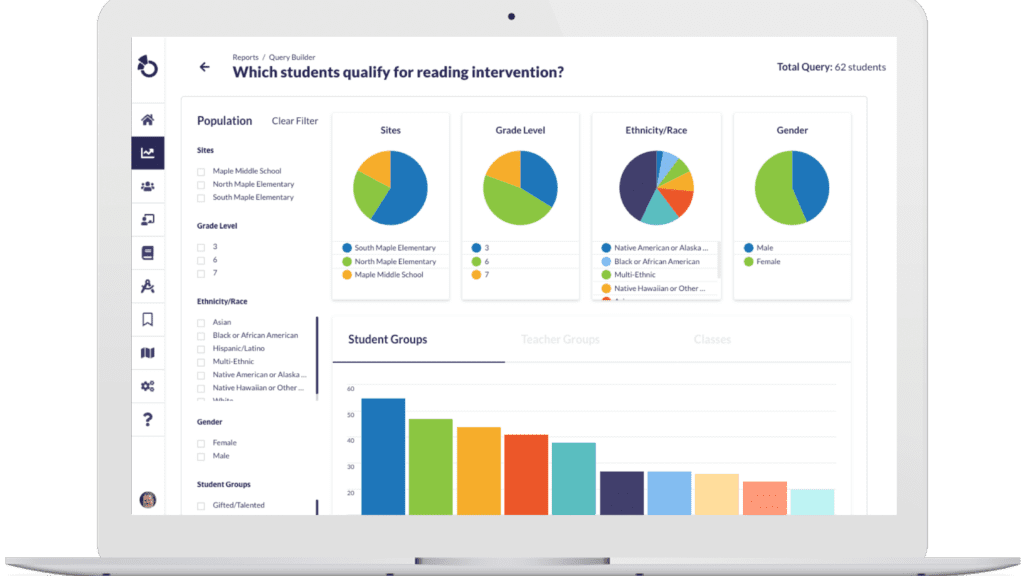Using Data to Address Summer Learning Loss
By: Guest
Summer learning loss has challenged educators each year going back decades. However, our understanding of what extended breaks mean for learners is evolving.
Based on advances in research methods as well as insights from real-world disruptions—most notably the COVID pandemic, the emerging picture of who is affected (and how much) is nuanced. Researchers are also looking into differences in how achievement is measured and gauging what prevention and recovery strategies are most effective.
Modern assessments still point to a drop in students’ average test scores over the summer, and math still tends to be affected more than reading. But the degree of learning loss varies widely depending on how researchers collect and analyze the data. And not all students backslide. Some actually gain ground over the summer.
Fortunately, Otus helps take the guesswork out of identifying and addressing summer learning loss. Here are three ways you can prepare for whatever level of learning your students bring back with them from vacation.
Expect unpredictability
 One of the few areas of consensus about summer learning loss is the tremendous amount of variability among students—but researchers have yet to pinpoint the reasons. Race, ethnicity, and gender have minimal impact. Older studies had indicated that test score drops were related to socioeconomic status, but experts point to serious structural limitations in that research.
One of the few areas of consensus about summer learning loss is the tremendous amount of variability among students—but researchers have yet to pinpoint the reasons. Race, ethnicity, and gender have minimal impact. Older studies had indicated that test score drops were related to socioeconomic status, but experts point to serious structural limitations in that research.
Access to summer enrichment programs and the length of the school year may not be as significant as researchers previously thought. On the other hand, students who practice reading daily even during school breaks might not lose as much ground as their peers.
Because demographic characteristics don’t predict which groups of students might be most at risk going into summer break, real-time performance monitoring after they return in the fall is the best way to ensure the entire class is on track.
Identify past trends
 Because population-wide patterns can be so unpredictable, narrowing in on long-term trends at the student level can help school leaders anticipate which children are more likely to experience summer learning loss. For instance, more than half of students whose test scores in English language arts decline over the summer have also lost ground over the summer in previous years.
Because population-wide patterns can be so unpredictable, narrowing in on long-term trends at the student level can help school leaders anticipate which children are more likely to experience summer learning loss. For instance, more than half of students whose test scores in English language arts decline over the summer have also lost ground over the summer in previous years.
Comparing scores year over year can help educators anticipate who is at risk this year and create plans to help them catch up if they do show signs of learning loss. In future years, they can come up with targeted suggestions such as summer reading assignments to keep students on track.
In addition to academic outcomes, there is a growing awareness that some students experience a slide in behavioral and social-emotional skills over the summer as well. This in part due to factors like the absence of school-year routines and separation from trusted teachers. As with reading and math, there is wide variability in who might be affected and whether they exhibit skill loss in the fall.
With Otus’ progress monitoring across the complete student profile, administrators can get a jump on behavioral and social-emotional as well as academic skills.
To help launch your exploration of beneficial reports and analysis, you can now use Otus AI, to ask natural-language questions in reference to student data from multiple areas.
Invite students (and families) to share ownership
Students who use the Otus platform have already begun building a picture of themselves as learners. Seeing test results that are lower than they expect after summer break would be justifiably disappointing and discouraging.
Educators can use a mismatch between expectations and results as an opening to talk about individual gains or losses over the summer. Their encouragement could keep students motivated so their early setbacks do not snowball.
 A drop in scores early in the school year is also a good opportunity to explain that it’s normal for skills to deteriorate when they haven’t been reinforced for a while. Practice (aka homework) matters. Encourage students to buckle down in the fall and partner with them and their families to track the resulting improvements.
A drop in scores early in the school year is also a good opportunity to explain that it’s normal for skills to deteriorate when they haven’t been reinforced for a while. Practice (aka homework) matters. Encourage students to buckle down in the fall and partner with them and their families to track the resulting improvements.
Finally, if performance patterns indicate a student has experienced summer slide in the past, Otus’ platform can be a starting point to guide families in how best to support their child in future summers and avoid setbacks in the fall.
Related Resources
Request a demo!
See exactly how Otus can help your school accelerate student growth and improve student outcomes – all while saving educators time.





